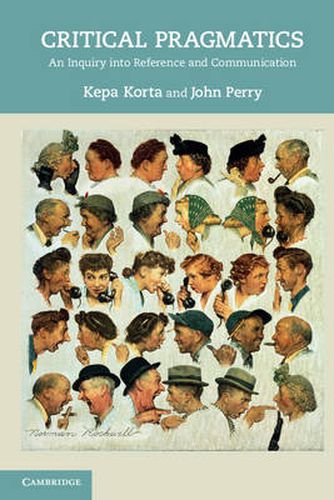Readings Newsletter
Become a Readings Member to make your shopping experience even easier.
Sign in or sign up for free!
You’re not far away from qualifying for FREE standard shipping within Australia
You’ve qualified for FREE standard shipping within Australia
The cart is loading…






Critical Pragmatics develops three ideas: language is a way of doing things with words; meanings of phrases and contents of utterances derive ultimately from human intentions; and language combines with other factors to allow humans to achieve communicative goals. In this book, Kepa Korta and John Perry explain why critical pragmatics provides a coherent picture of how parts of language study fit together within the broader picture of human thought and action. They focus on issues about singular reference, that is, talk about particular things, places or people, which have played a central role in the philosophy of language for more than a century. They argue that attention to the ‘reflexive’ or ‘utterance-bound’ contents of utterances sheds new light on these old problems. Their important study proposes a new approach to pragmatics and should be of wide interest to philosophers of language and linguists.
$9.00 standard shipping within Australia
FREE standard shipping within Australia for orders over $100.00
Express & International shipping calculated at checkout
Critical Pragmatics develops three ideas: language is a way of doing things with words; meanings of phrases and contents of utterances derive ultimately from human intentions; and language combines with other factors to allow humans to achieve communicative goals. In this book, Kepa Korta and John Perry explain why critical pragmatics provides a coherent picture of how parts of language study fit together within the broader picture of human thought and action. They focus on issues about singular reference, that is, talk about particular things, places or people, which have played a central role in the philosophy of language for more than a century. They argue that attention to the ‘reflexive’ or ‘utterance-bound’ contents of utterances sheds new light on these old problems. Their important study proposes a new approach to pragmatics and should be of wide interest to philosophers of language and linguists.